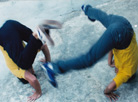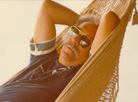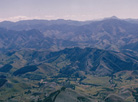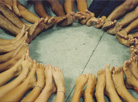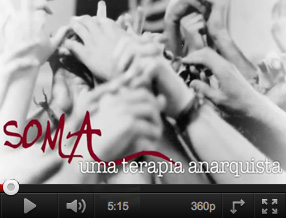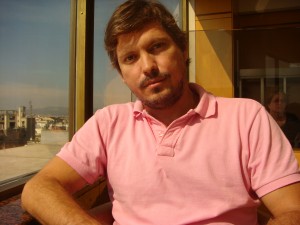Roberto Freire
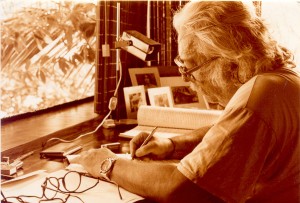 Roberto Freire grew into a major libertarian thinker, playing an important role in many cultural areas in Brazil, particularly in last decades of the 20th century. Varying between novels and essays, he wrote more than 30 books and was an active player in a range of different areas – theater, journalism, cinema, music and medicine. This intellectual activism together with Freire’s engagement in the fight against the military dictatorship nurtured the creation of Soma. Roberto Freire passed away in May 2008, and remained faithful to his beliefs and a loyal libertarian until the last days of his life.
Roberto Freire grew into a major libertarian thinker, playing an important role in many cultural areas in Brazil, particularly in last decades of the 20th century. Varying between novels and essays, he wrote more than 30 books and was an active player in a range of different areas – theater, journalism, cinema, music and medicine. This intellectual activism together with Freire’s engagement in the fight against the military dictatorship nurtured the creation of Soma. Roberto Freire passed away in May 2008, and remained faithful to his beliefs and a loyal libertarian until the last days of his life.
In Freire’sintellectual pilgrimage we find not only the unorthodox therapist who engineered his own method, Soma, but also the ´tesao’ militant. A literal first translation of ‘tesão’ would be hornyness, but in fact Freire captured the semantic transformations of this word, linking them to the 60’s spirit of rebelliousness and love, when youngsters started to use tesãoto describe something or someone that brings out the experience of beauty, cheerfulness and pleasure – thus with a more comprehensive connotation than the merely sexual one. The search for pleasure ( ‘Tesão’) for him is a way of life and pleasure a vital life feeding fuel.
Freire’s books fast resonated with a young audience, and they have so been doing in the last 30 years. His first novel, “Cléo e Daniel”, reached a young audience and became a best-seller, with 200,000 books sold. Instead of using book stores as sales points, Freire formatted the book as a mix of newspaper & book and sold Cleo and Daniel in newsstands – an unheard of publishing strategy at that time. This sense immediacy and proximity with his readers again typifies the avant-garde posture of Freire , and helped plant the seeds of Soma.
The ingredients of this closeness with the youth are clearly laid out in his essays “Utopia e Paixão” (Utopia & Passion) , “SemTesãoNãoHáSolução” (No Pleasure, No Solution) e “Ame e dêVexame (Love Without Shame) – pleasure as a revolutionary ideology counteracting the sacrifices imposed by the authoritarian and hierarchicalsocieties
The notion of pleasure as a compass signaling our uniqueness became Freire’s flagship since he broke off with psychoanalysis and traditional psychiatry in the 60’s. With a degree in medicine, he had worked in psychiatric outpatient clinics and later completed his psychoanalysis formation. He diverged from the conservative psychoanalytic environment, which he found to be too submissive to the ruling powers.
He then embraced journalism, became a writer and a playwright. His creativity blossomed as writer but he gradually rediscovered his passion for psychology. In the late 60’s, he resumed working as a therapist while researching a new approach to his clinical practice, closer to his political-existential ideology – anarchism. After 40 years of experiences, practice and studies, with branches in several cities in Brazil, Soma in now consolidated as an effective libertarian therapeutic and pedagogical approach.
Roberto Freire, our dearest ‘Bigode’ (‘Moustache’), passed away in 2008. He remained a passionate militant, dedicating himself to straightening Soma and anarchism in Brazil. In the years closer to his death, he remained very active, supervising the work of Somotherapists from the ColetivoBrancaleone , delivering lectures, offering courses and writing books.
His last works comprised an autobiography (“Eu é um outro”), the book “O Tesãopela Vida” (co-written with Somatherapists from the ColetivoBrancaleone) and a CD (Vida de Artista”) recorded with his children and friends.
João da Mata
At 43, João da Mata is the longest of Freire’s collaborator in activity. He has played a crucial role on S oma’s developments and expansion in the last 20 years, through supervising therapy groups and contributing with research, books, lectures and courses in Brazil and abroad. He has helped establish Soma as research field in universities, particularly in Rio and Lisbon.
Mata first contact with Soma took place in 1988, initially as a group member and later as a Soma therapist, under the supervision of Roberto Freire, who became his mentor and close friend. This strong bond lasted for over twenty years, when Freire passed away in 2008.
João da Mata is a psychologist with an MA degree in Philosophy. He is currently enrolled in two PhD Programs : a Doctoral Program in Economic and Organizational Sociology in Portugal ((ISEG/UTL) another one in Social Psychology in Brazil (Niterói, Univeridade Federal Fluminense) . In Portugal his research focuses on group dynamics and self-management, while in Brazil he investigates the interrelationship between the body andcapoeira angola, and its potential therapeutic benefits.
Mata has supervised Soma groups in several Brazilian cities. He currently works in São Paulo and Rio de Janeiro, where he resides. He also set up therapeutic groups in Lisbon, Madrid and Barcelona. In Barcelona, an active research group has been keptalive and Soma therapy is still carried out.
Together with Roberto Freire, he published in 1993 his first book, “SOMA – Vol. III – Corpo a Corpo” (Ed. Guanabara Koogan ). In his second “A Liberdade do Corpo” (Ed. Imaginário), he discusses capoeira angola as a theurapeutic tool in Soma groups. “O Tesão pela Vida” (2006, Ed. Francis), was written together with the group of Soma therapists and was followed by “Prazer e Rebeldia” (Ed. Achiamé) in 2007 . In 2009, “Introdução à Soma – uma terapia anarquista” (Ed. Achiamé) was released.
Besides supervising groups, João da Mata also sees patients on an individual basis , but grounds his one-to-one work on the approach he helped to develop for Soma.
João da Mata is also a photographer and a documentary maker. He was awarded a prize for his documentary ‘O Brasil de Walter Firmo’, at Festival Brasilidade, sponsored by the Museum of Modern Art MAM-RJ and the Goethe Institute
